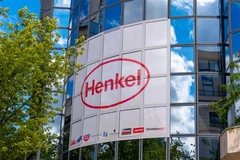Saperactec, Wentus and Henkel partner on flexible detergent pack to meet EU legal changes

04 Oct 2022 --- Saperactec, Wentus and Henkel have partnered to create a fully circular flexible detergent package. The designed prototype meets environmentally sustainable packaging goals proposed for the pending EU Directive on Packaging and Packaging Waste.
Saperatec is a developer of recycling processes for composite packaging composed of various materials, Wentus is a German-based packaging film supplier and Henkel is an adhesives, sealants and functional coatings provider. Together, the companies used their industry knowledge to create an environmentally conscious detergent packaging solution.
The detergent package is based on Saperatec's multi-layer delamination technique and extended mechanical recycling process for thin-layer composite materials, resulting in virgin-similar recycled materials.

.jpg) Saperactec, Wentus and Henkel will be showcasing their new recyclable composite detergent packaging prototype. The prototype will be showcased at the K Fair 2022 trade show on October 19-26 in Düsseldorf, Germany.
Saperactec, Wentus and Henkel will be showcasing their new recyclable composite detergent packaging prototype. The prototype will be showcased at the K Fair 2022 trade show on October 19-26 in Düsseldorf, Germany.
PCR product
The packaging uses 35% post-consumer recycled content (PCR) which is in line with the proposed recommendations for the EU directive regarding non-food packaging.
The two-layer design is entirely made from PE, its inner sealing layer incorporates more than 50% PCR from beverage carton waste. Its outer layer is printed with less than 50% surface coverage and laminated with Henkel‘s recyclable adhesive. The mono-PE flexible packaging is completely recyclable.
The companies claim their recycled materials can replace virgin raw materials in numerous applications, including film or foil-based packaging.
They state their process adds no contaminants to recycled polymers, and all chemicals used in the process comply with EU food contact regulations. The technique used to create the detergent packaging prototype is applicable for composite packaging comprised of various combinations of plastic, metal and glass.
Meanwhile, PackagingInsights recently explored the latest trends in household packaging with experts from SP Group (SPG), Henkel and Berry Global.
Environmental motivation
According to a statement from the companies, more than 140 million metric tons of plastic packaging waste are produced globally each year. A significant portion is made up of composite packaging, which consists of combinations of materials. Saperactec is set to build its first recycling plant for composite packaging in Germany in 2023.
Saperactec is set to build its first recycling plant for composite packaging in Germany in 2023.
Composite packaging is more difficult to recycle than an item made from a singular material. It has posed sizable obstacles to recycling efforts, as separating composite packaging into its various origin materials has been technologically challenging and, even when successful, unsustainable due to using non-eco-friendly chemicals.
Saperatec is currently building its first recycling plant for composite packaging in Dessau, Germany. In 2023, the facility will commence commercial operations with an initial goal of processing about 18,000 metric tons of packaging waste per year.
Part of the reason this plant was able to be built is that its partner, Henkel, made a significant investment in Saperatec in 2019. The plant plans to bring the potential to separate and reintegrate a wide variety of substrates into the packaging stream.
In June, Henkel announced its dishwashing detergent brand Pril was being supplied in 100% recycled PET bottles, with 50% of the material originating from Germany’s yellow bag waste system. The remaining recyclate was sourced from recycled PET beverage bottles.
Edited by Sabine Waldeck











